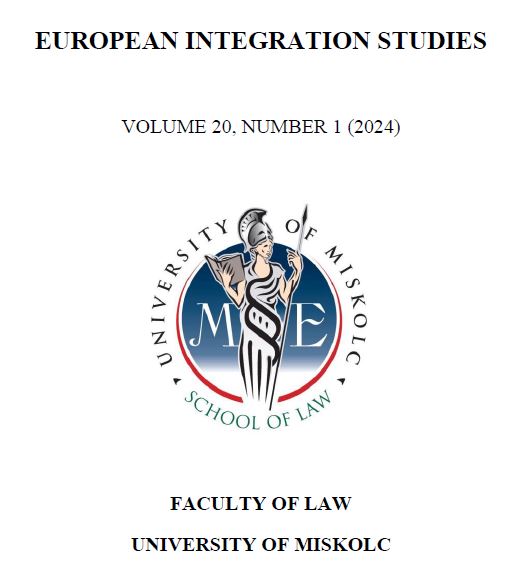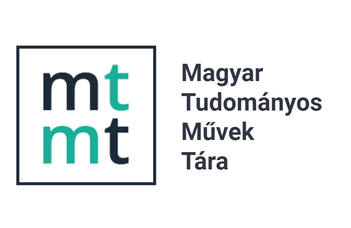Role of the family in the socialisation of children: Relevant sociological research in Hungary
DOI:
https://doi.org/10.46941/2024.1.6Schlagworte:
family, socialisation, children, Roma, social situation.Abstract
The number of children in Hungary has been steadily decreasing in the recent decades, which poses serious demographic challenges for the country. According to the latest statistics, the decrease in the number of children is not only a consequence of the relatively low number of births, but is also related to the aging of the population and the changing values among young people.
The socialization and rights of children are closely related to the family environment, educational institutions and social interactions. The socialization of children begins in the family, where the parent-child relationship plays a fundamental role in the development of the personality. Family parenting styles, such as supportive or authoritarian approaches, have a significant impact on children's socialization processes and their later quality of life.
The protection of children's rights is also crucial during socialization processes. The UN Convention on the Rights of the Child emphasizes the rights of children, including the right to freedom of expression, the right to family life and the provision of an appropriate educational environment.
During the process of family socialization, children learn social behaviors not only from the close family environment, but also from broader family relationships, which are particularly emphasized in large families. In large families, children can see more examples, which enriches their socialization experiences and helps them develop social skills.
Family customs, patterns and norms, from religiosity to financial decision-making, also have a significant impact on children's future lives. In addition, family socialization affects not only children's development, but also interactions between families and social structures. During family life education, children learn how social relationships work and how to navigate different social situations. In large families, shared experiences and family traditions further strengthen family identity, which plays a decisive role in their later (adult) lives.
Literaturhinweise
Aldous, J. (1990) ’Family Development and the Life Course: Two Perspectives on Family Change’, Journal of Marriage and Family, 52(3), pp. 571–583; https://doi.org/10.2307/352924.
Arakelyan, S., Ager, A. (2020) ’Annual research review: a multilevel bioecological analysis of factors influencing the mental health and psychosocial well‐being of refugee children’, Journal of Child Psychology and Psychiatry, 62(5), pp. 484-509; https://doi.org/10.1111/jcpp.13355.
Bagherabadi, F., Nikpeyma, N., Pashaeypoor, S. (2020) ‘Association between children’s social skills and developmental function of family in Iran’, Shiraz E-Medical Journal, 21(11), e99277; https://doi.org/10.5812/semj.99277.
Barzó, T. (2021) ‘Family Protection in Central European Countries’, in Barzó, T., Lenkovics, B. (eds.) Family Protection From a Legal Perspective: Analysis on Certain Central European Countries. Budapest–Miskolc: Ferenc Mádl Institute of Comparative Law–Central European Academic Publishing, pp. 287-322; https://doi.org/10.54237/profnet.2021.tbblfl_9.
Benyusz, M. (2021a) ‘Kikből lettek és kivé válnak a 21. század gyermekei?’, Acta Humana - Emberi Jogi Közlemények, 9(4), pp. 7–29; https://doi.org/10.32566/ah.2021.4.1.
Benyusz, M. (2021b) ‘A gyermekek jövője az Európai Unióban – Mit ígér a Bizottság 2021 - 2024-es stratégiája?’, Jog – Állam - Politika, 13(3), pp. 149–162, [Online]. Available at: https://jap.sze.hu/images/lapsz%C3%A1mok/2021/3/JAP_2021_3_benyusz_marta.pdf (Accessed: 09 February 2024)
Berényi, E. (2022) ‘Social selection step by step: The case of the Early Selective Grammar Schools in Hungary’, Intersections. East European Journal of Society and Politics, 8(2), pp. 59–79; https://doi.org/10.17356/ieejsp.v8i2.848.
Chambers, D., Gracia, P. (2021) A sociology of family life: Change and diversity in intimate relations. 2nd Edition, Cambridge: Polity.
Cross, F. L., Marchand, A. D., Medina, M., Villafuerte, A., Rivas‐Drake, D. (2019) ‘Academic socialization, parental educational expectations, and academic self‐efficacy among Latino adolescents’, Psychology in the Schools, 56(4), pp. 483-496; https://doi.org/10.1002/pits.22239.
Cunningham, M. (2001) ‘The Influence of Parental Attitudes and Behaviors on Children’s Attitudes Toward Gender and Household Labor in Early Adulthood’, Journal of Marriage and Family, 63(1), pp. 111-122; http://dx.doi.org/10.1111/j.1741-3737.2001.00111.x.
Dani, Cs., Kottáné, B. M. (2018) ‘A családok támogatásáról szóló 1998.évi LXXXIV törvény fontosabb változásai napjainkig’, Kapocs, 1(3), pp. 23-27, [Online]. Available at: https://epa.oszk.hu/02900/02943/00079/pdf/EPA02943_kapocs_2018_3_23-27.pdf (Accessed: 09 February 2024).
Downey, D. B. (1995) ‘When bigger is not better: Family size, parental resources, and children’s educational performance’, American Sociological Review, 60(4), pp. 746-761; https://doi.org/10.2307/2096320.
Duvall, E. M. (1957) Family development. Philadelphia: J. P. Lippincott.
Eijck, K.V., De Graaf, P. M. (1995) ‘The effects of family structure on the educational attainment of siblings in Hungary’, European Sociological Review, 11(3), pp. 273-292; https://doi.org/10.1093/oxfordjournals.esr.a036364.
Elekes, G. (2022) ‘The role of the teacher in the educational achievement of Roma children’, Gyermeknevelés Tudományos Folyóirat, 10(2–3), pp. 48–60; https://doi.org/10.31074/gyntf.2022.3.48.60.
Engler, Á., Kozek K. L., Németh, D. (2020) ‘The Concept and Practice of Family Life Education’, Central European Journal of Educational Research, 2(3), pp. 55-61; https://doi.org/10.37441/CEJER/2020/2/3/8530.
Engler, Á., Pári, A. (2022) ‘A család jövője – az elsődleges szocializációs közeg társadalmi szerepváltozása’, Századvég, 2022/3. pp. 11-34.
Engler, Á., Markos, V., Major, E. (2024) ‘Relationship patterns and having children’, Kapocs, 2024/1, pp. 134–146.
Engler, Á., Antal, I., Markos, V., Trásy, L., Pári, A. (2022) ‘Hátrányos helyzetű tanulók otthoni tanulása a jelenléti és a távolléti oktatás idején’, in Molnár, Gy., Tóth, E. (eds.) Új kutatások a neveléstudományokban 2021: A neveléstudomány válaszai a jövő kihívásaira. Szeged - Budapest: Szegedi Tudományegyetem Neveléstudományi Intézet - MTA Pedagógiai Tudományos Bizottság, pp. 192-207.
Farkas, L. (2007) Segregation of Roma Children in Education: Addressing Structural Discrimination through the Race Equality Directive. Luxembourg City: Office for Official Publications of the European Communities, [Online]. Available at: https://www.academia.edu/7769729/Segregation_of_Roma_Children_in_Education_Addressing_Structural_Discrimination_through_the_Race_Equality_Directive (Accessed: 21 September 2024).
Feinberg, M. E., A Mogle, J., Lee, J. K., Tornello, S. L., Hostetler, M. L., Cifelli, J. A., Bai, S., Hotez, E. (2022) ‘Impact of the COVID-19 Pandemic on Parent, Child, and Family Functioning’, Family process, 61(1), pp. 361–374; https://doi.org/10.1111/famp.12649.
Fernández-Arrojo, M., Gas-Aixendri, M., Delicati, S., Kisunaite, A. (2020) ‘Children's rights and policies in Europe: realities and challenges in Spain and Italy’, Archivio giuridico Filippo Serafini, 152(3), pp. 849-901.
Ferreira, I. A., Silva, C. S., Neves, L., Guichard, S., Aguiar, C. (2021) ‘Predictors of shared book reading at home with preschoolers: Are there differences between Roma and non-Roma low-income families?’, Social Psychology of Education, 24(2), pp. 1163–1191; https://doi.org/10.1007/s11218-021-09648-5.
Fodor, B. (ed.) (2021) Gyermekjogi Jelentés, 2020. Hintalovon Gyermekjogi Alapítvány, 2021, [Online]. Available at: https://hintalovon.hu/wp-content/uploads/2021/06/Hintalovon_Alapitvany_Gyermekjogi_jelentes_2020.pdf (Accessed: 02 February 2024)
Fong, C. V., Iarocci, G. (2020) ‘Child and family outcomes following pandemics: A systematic review and recommendations on COVID-19 policies’, Journal of pediatric psychology, 45(10), pp. 1124-1143; https://doi.org/10.1093/jpepsy/jsaa092.
Fűrész, T., Székely, A. (2019) ‘A tervezett gyermekek számának alakulása a 2010-es években’, Kapocs, 2019/1–2, pp. 3–14.
Gellérné, L. É. (2021a) ‘Hungarian Family Support Policies in Light of Demographic Challenges in the EU’, in Somssich, R. (ed.) Ratio et mensura - Studia M. Király dedicata: Ünnepi tanulmányok Király Miklós 60. születésnapja alkalmából. Budapest: ELTE Eötvös Kiadó, pp. 229-242.
Gellérné, L. É. (2021b) ‘Support for Families’, Hungarian Yearbook of International Law and European Law, 9(1), pp. 91-110; https://doi.org/10.5553/HYIEL/266627012021009001006.
Grätz, M., Lang, V., Diewald, M. (2022) ‘The effects of parenting on early adolescents’ noncognitive skills: Evidence from a sample of twins in Germany’, Acta Sociologica, 65(4), pp. 398-419; https://doi.org/10.1177/00016993211051958.
Guerra, N., Toro, R. (2012) ‘Positive parenting, family cohesion, and child social competence among immigrant latino families’, Journal of Latina/O Psychology, 1(S), pp. 3-13. https://doi.org/10.1037/2168-1678.1.s.3.
Gudzinskiene, V., Augutavičius, R. (2018) ‘The phenomenon of social risk families and its dynamics in lithuania’, SHS Web of Conferences, 51, 03001; https://doi.org/10.1051/shsconf/20185103001
Gyorgyovich, M., Pári, A. (2023) ‘A család(fogalom) pluralizálódása a magyar társadalomban’, in Pári, A., Gyorgyovich, M. (eds.) Család - Érték - Tér: Tanulmányok a családi értékekről. Budapest: Kopp Mária Intézet a Népesedésért és a Családokért, pp. 13-36.
Hay, D. A., Preedy, P. (2006) ‘Meeting the educational needs of multiple birth children’, Early human development, 82(6), pp. 397-403; https://doi.org/10.1016/j.earlhumdev.2006.03.010.
Hegedűs, R., Pári, A., Drjenovszky, Z., Kónya, H. (2014) ‘Twinship as a resource zygosity- and gender-based comparison of twins' attitudes toward twinship’, Twin Res Hum Genet, 17(5), pp. 376-382; https://doi.org/10.1017/thg.2014.51.
Hegedűs, R. (2023) ‘Sajátos nevelési igényű gyermekek, tanulók számának területi és statisztikai elemzése’, Educatio, 32(2), pp. 228–246; https://doi.org/10.1556/2063.32.2023.2.4.
Hjern, A., Haglund, B., Rasmussen, F., Rosén, M. (2000) ‘Socio‐economic differences in daycare arrangements and use of medical care and antibiotics in swedish preschool children’, Acta Paediatrica, 89(10), pp. 1250-1256, https://doi.org/10.1111/j.1651-2227.2000.tb00744.x.
Kapdebo, Á., Papházi, T., Tárkányi, T. (2022) ‘Gyermekvállalási tervek a pandémia idején Magyarországon’, Kapocs, 2022/1, pp. 32–45; https://doi.org/10.56077/AP.2022.1.5.
Kende, A., Neményi, M. (2006) ‘Selection in education: the case of Roma children in Hungary’, Equal Opportunities International, 25(7), pp. 506-522; https://doi.org/10.1108/02610150610714376.
Khan, M. (2015) ‘The role of the family in socializing the autistic children: a study in Bangladesh’, International Letters of Social and Humanistic Sciences, 55, 70-85. https://doi.org/10.18052/www.scipress.com/ILSHS.55.70.
Kozma, T., Pusztai, G., Torkos, K. (2003) ‘Roma childhood in Eastern Europe’, Acta Paedagogica Vilnensia, 11 (2003), pp. 44–62; doi:10.15388/ActPaed.2003.11.9597.
Kuepie, M., Tenikue, M. (2012) The effect of the number of siblings on education in sub-Saharan Africa: evidence from a natural experiment. [Online]. Available at: https://liser.elsevierpure.com/ws/files/11781779/Working%20Paper%20n%C2%B02012-28%20pp.%201-28 (Accessed: 23 November 2023).
Li, C., Liang, Z., Yin, X., Zhang, Q. (2018) ‘Family social capital mediates the effect of overty on children's anxiety and depression’, Journal of Community Psychology, 46(8), pp. 983-995; https://doi.org/10.1002/jcop.22086.
Leidy, M. S., Guerra, N. G., Toro, R. I. (2010) ‘Positive parenting, family cohesion, and child social competence among immigrant Latino families. Journal of Latina/o Psychology, 1(S), 3–13. https://doi.org/10.1037/2168-1678.1.S.3
Llorente, C. L., Gas-Aixendri, M. (2022) ‘Family resources and needs in the post-pandemic era’, Kapocs, 2022/3/4, pp. 141-147.
Lux, Á. (2018) ‘A gyermekek jogai’, in Jakab, A., Fekete, B.(eds.) Internetes Jogtudományi Enciklopédia (Alkotmányjog rovat), [Online]. Available at: http://ijoten.hu/szocikk/a-gyermekek-jogai (Accessed: 12 September 2023).
Lux, Á. (2020) ‘A sajátos nevelési igényű gyermekek társadalmi mobilizációjának jogi háttere’, Közjogi Szemle, 2020/4, pp. 26-36.
Lux, Á. (2022) Gyermekjogok és kereszténység. A Szentszék nemzetközi gyermekjogi kötelezettségei. Budapest: HVG-ORAC.
Métneki, J., Pári, A. (2020) ‘Egy- és kétpetéjű ikrek’, in Tárnoki, Á., Tárnoki, D., Littvay, L., Métneki, J., Melicher, D., Pári, A. (eds.) Ikerkutatás és epigenetika. Budapest: Medicina, pp. 21–30.
Murinkó, L., Spéder Z (2021) ‘Gyermekdemográfia’ in Monostori, J., Őri, P., Spéder, Zs. (eds.) Demográfiai portré 2021: Jelentés a magyar népesség helyzetéről. Budapest: KSH Népességtudományi Kutatóintézet (KSH NKI), pp. 83-98, [Online]. Available at: https://www.demografia.hu/kiadvanyokonline/index.php/demografiaiportre/article/view/2837/2727 (Accessed: 15 January 2024).
Óhidy, A., Sheila, R., Alina, B.-K. (2022) ‘Children´s rights in European education. Dilemmas, challenges and implementation regarding Roma children in selected European countries – An introduction’, Hungarian Educational Research Journal, 12(1), pp. 1-11; https://doi.org/10.1556/063.2021.00086.
Pári, A., Engler, Á. (2024) ‘The Role of Sibling Patterns in the Educational Attainment of Hungarian Twins.’ Twin Research And Human Genetics, 27(6), 1–10. http://doi.org/10.1017/thg.2024.37
Pusztai, G., Demeter-Karászi, Zs., Csonka, É., Bencze, Á., Major, E., Szilágyi, E., Bacskai, K. (2024) ‘Patterns of parental involvement in schools of religious communities. A systematic review’, British Journal of Religious Education, 46(4), pp. 485-504; https://doi.org/10.1080/01416200.2024.2315550.
Raffael, M., Szabó, D., Makay, M. (2023) ‘A magyarországi cigányság hazai megítélése a romák és nem romák körében’, in Pári, A., Gyorgyovich, M. (eds) Család - Érték – Tér, Budapest: Századvég, pp. 217–236.
Rodgers, R. H. (1964) ‘Toward a Theory of Family Development’, Journal of Marriage and Family, 26(3), pp. 262–270; https://doi.org/10.2307/349456.
Trásy, L. (2023) ‘Korai iskolaelhagyás hátrányos helyzetű településeken − iskolai lemorzsolódással veszélyeztetettek a felső tagozatosok körében’. Kapocs, 2023/1, pp.132-139.
Vörös, Cs., Kovács, M. (2013) ‘A változó család a népszámlálási adatok tükrében1, Statisztikai Szemle, 91(12), pp. 1213–1227.
Williams, C. (2023) ‘Children’s ethnic–racial identity and mothers’ cultural socialization as protective in relations between sociocultural risk factors and children’s internalizing behaviors’, Cultural Diversity and Ethnic Minority Psychology, 29(4), pp. 459-470. https://doi.org/10.1037/cdp0000619.
EUR-Lex (2012) Communication from the Commission to the European Parliament, the Council, the European Economic and Social Committee and the Committee of the Regions: European Strategy for a Better Internet for Children /* COM/2012/0196 final */ [Online]. Available at: https://eur-lex.europa.eu/legal-content/EN/TXT/HTML/?uri=CELEX:52012DC0196 (Accessed: 19 November 2024).
EUR-Lex (2013) Commission recommendation of 20 February 2013: Investing in children: breaking the cycle of disadvantage [Online]. Available at: https://eur-lex.europa.eu/legal-content/EN/TXT/HTML/?uri=CELEX:32013H0112&qid=1726922575108 (Accessed: 19 November 2024).
EUR-Lex (2017) Communication from the Commission to the European Parliament and the Council: The protection of children in migration {SWD(2017) 129 final} [Online]. Available at: https://eur-lex.europa.eu/legal-content/EN/TXT/HTML/?uri=CELEX:52017DC0211&qid=1726922927547 (Accessed: 19 November 2024).
European Roma Rights Centre (ERRC) (2007) Dis-Interest of the Child Romani Children in the Hungarian Child Protection System [Online]. Available at. https://www.errc.org/uploads/upload_en/file/02/8F/m0000028F.pdf (Accessed: 20 September 2024).
UNICEF (1990) Convention on the Rights of the Child, [Online]. Available at: https://www.unicef.org/child-rights-convention/convention-text (Accessed: 20 September 2024).





